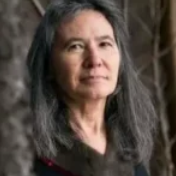The Arctic is warming nearly four times faster than the rest of the world, and Arctic Indigenous Peoples bear the brunt of the plastic and petrochemical industry’s toxic operations. Plastics and chemicals from all over the world are transported on atmospheric and oceanic currents northward, where they accumulate in the Arctic through a process called global distillation.
The production and use of fossil fuels by the petrochemical industry is the starting point for the damage faced by the Arctic related to plastics, chemicals, and climate change. These threats have combined to poison the lands, waters, and traditional foods of Arctic Indigenous Peoples, with ongoing health effects that threaten their cultures and communities.
A recent report jointly published by ACAT and the International Pollutants Elimination Network (IPEN) synthesizes recent evidence from more than 250 studies on the interconnected threats from plastics, petrochemicals, and climate change that harm Arctic Peoples. The report describes how the Arctic is at risk from chemicals and plastics throughout their toxic life cycle and offers recommendations in support of a just transition to a regenerative economy.
CHE-Alaska hosted Dr. Therese Karlsson, Dr. Pamela Miller and Dr. Dalee Sambo Dorough in a discussion on how the combined effects of plastic pollution, petrochemical operations, and climate change are harming the health and well-being of communities in the Arctic. Pamela Miller, ACAT’s Executive Director and IPEN’s Co-Chair, and Dr. Karlsson, IPEN’s Science & Technical Advisor, are the lead authors of the report. Dr. Sambo Dorough, Senior Scholar and Special Advisor on Arctic Indigenous Peoples at the University of Alaska Anchorage, will discuss the compounding effects of chemicals and plastics on Arctic Indigenous Peoples as a human rights issue.
Featured Speakers

Dalee Sambo Dorough MALD, PhD is the former International Chair of the Inuit Circumpolar Council, a non-governmental organization that represents Inuit from the Russian Far East, Alaska, Canada, and Greenland. She specializes in Alaska Native self-determination and has extensive experience in the administration, management, and coordination of statewide, national, and international organizations. She has served as an Assistant Professor of International Relations within the Department of Political Science at the University of Alaska Anchorage; Chairperson and Expert Member of the UN Permanent Forum on Indigenous Issues; and Co-Chair of the International Law Association (ILA) Committee on Implementation of the Rights of Indigenous Peoples. Dorough has a long history of direct involvement in the discussion, debate, and negotiation of the UN Declaration on the Rights of Indigenous Peoples (UNDRIP). Dorough holds a PhD from the University of British Columbia, Faculty of Law, and a Master of Arts in Law and Diplomacy from The Fletcher School at Tufts University.

Pamela Miller, the founder and Executive Director of ACAT since 1997, brings more than 35 years of research, education, and advocacy experience to her present work. In 2016, Pam was elected as Co-Chair of the International Pollutants Elimination Network (IPEN), a coalition of more than 600 environmental health and justice organizations working in 124 countries. She is also a principal investigator for community-based research projects supported by the National Institute of Environmental Health Sciences.
 This webinar was hosted by the CHE-Alaska Partnership, which is coordinated by Alaska Community Action on Toxics (ACAT). Driven by a core belief in environmental justice, ACAT empowers communities to eliminate exposure to toxics through collaborative research, shared science, education, organizing, and advocacy.
This webinar was hosted by the CHE-Alaska Partnership, which is coordinated by Alaska Community Action on Toxics (ACAT). Driven by a core belief in environmental justice, ACAT empowers communities to eliminate exposure to toxics through collaborative research, shared science, education, organizing, and advocacy.
